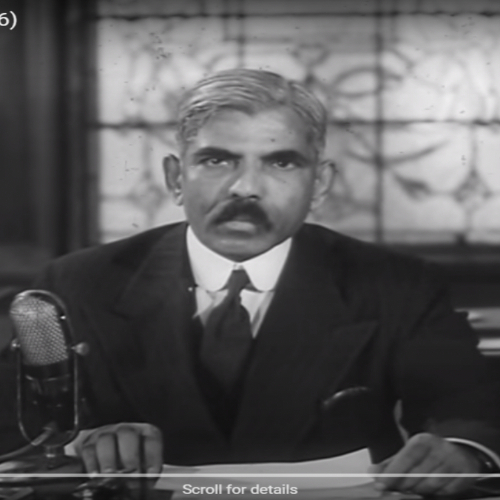Early Life
Ramaswamy Mudaliar was born on 14th October 1887 in Kurnool, Andhra Pradesh. Along with his twin brother, he obtained his undergraduate degree from the Madras Christian College. At College, he read ardently and organised student debates. Later, he went on to obtain a law degree from the Madras Law College. He began practising law in the Madras High Court from 1911. Within a short span of time, he became one of the prominent lawyers in Madras.
His eloquence and popularity as a lawyer provided him with several political opportunities. In 1917 he joined the Justice Party and rose to be one of its notable members. As a member of the Madras Legislative Council, he took a deep interest in reforming education and was instrumental in the passing of key educational laws including Madras Education Act, 1920 and Madras University Act, 1923.
Several international delegations including Joint Parliamentary Committee on Constitutional Reforms for India, British Commonwealth Relations Conference and Indian Delegation to the Pacific Relations Conference benefitted from Mudaliar’s active involvement.
In 1946, he became the Chief Minister of Mysore State.
Role in India’s Independence Movement
Mudaliar led the Justice Party delegation in the Joint Parliamentary Committee on Constitutional Reforms in India. He took an active part in the Round Table Conferences.
Watch: Mudaliar’s address on the food crisis in India.
Contribution to Constitution Making
Mudaliar represented Mysore state in the Constituent Assembly. He strongly advocated for a strict federal structure and intervened in a debate pertaining to fiscal federalism.
Later Contributions
Post-independence, Mudaliar had a prolific career in international relations. He headed numerous Indian delegations to the UN. In 1946 he was elected the first President of the United Nations’ Economic and Social Council. He also went on to serve as the chair of the executive boards of the WHO and UNESCO. Mudaliar was a well-respected delegate at the ILO, where he was a member of the Committee of Experts on the Application of Conventions and Recommendations (1959-1971). During this time, he was elected Chair of the Committee for seven years, from 1962 to 1969.
In 1958, AMM Charities Trust set up Sir Ramaswamy Mudaliar Higher Secondary School in Ambattur, Tamil Nadu.
The government awarded Mudaliar with the Padma Bhushan in the year 1954 and the Padma Vibhusan in 1970.
- In a debate on the centre-state distribution of taxation powers, Mudaliar argued for the centre to be vested with greater taxation powers in order to enable it to fulfil its nation-building mandate and provide for national defence.

